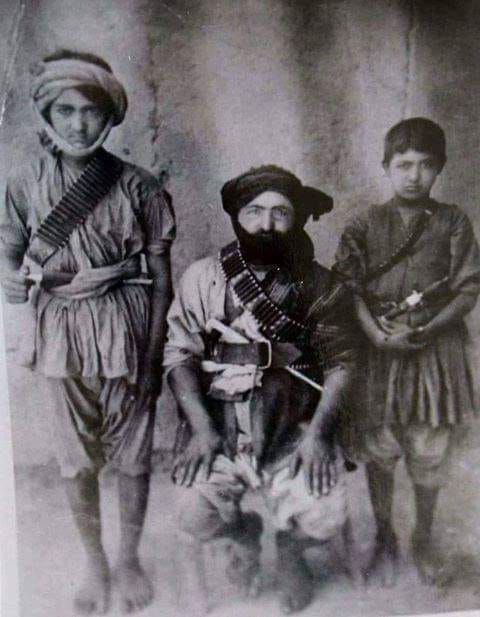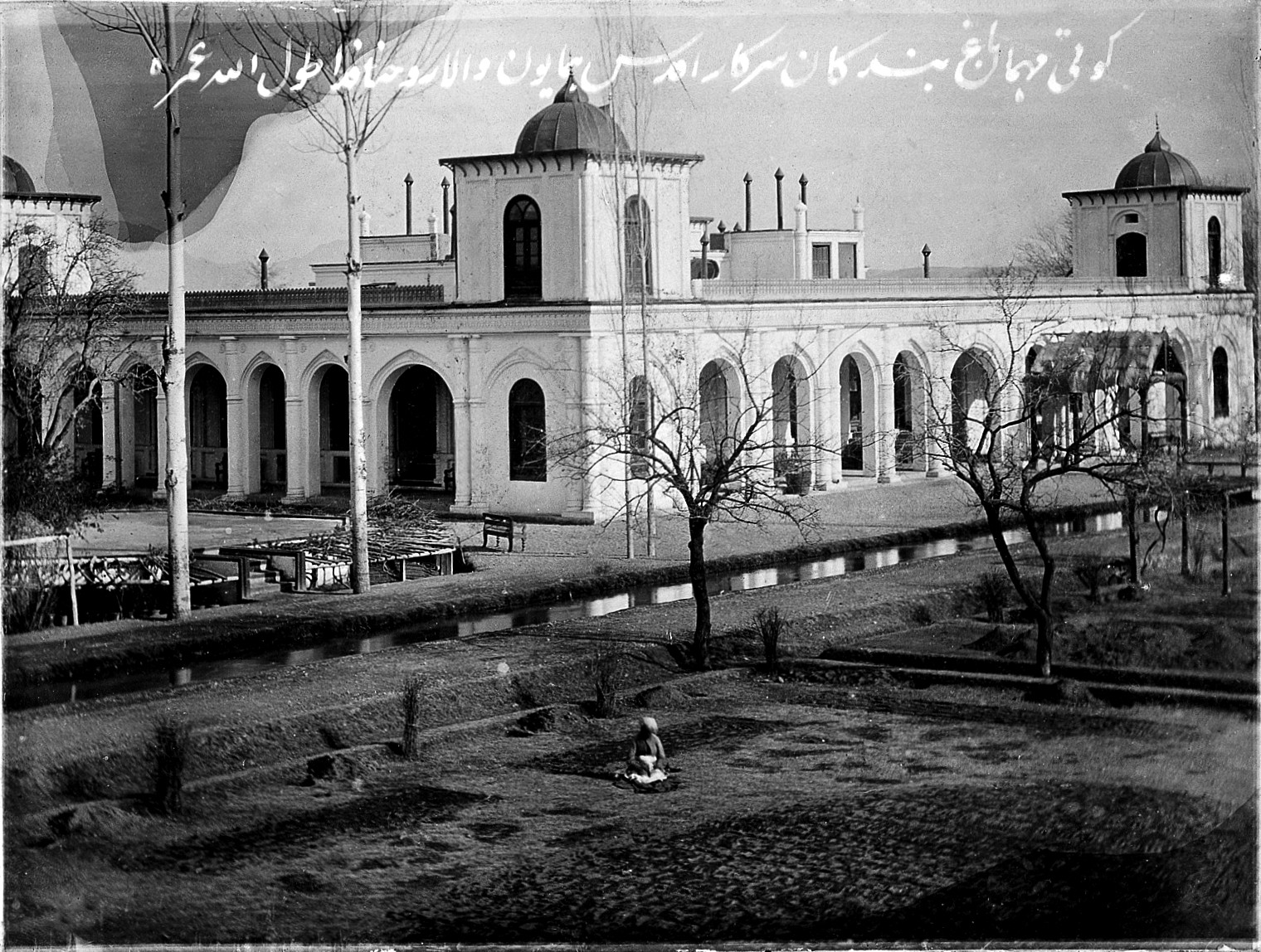|
Babrak Khan
Babrak Khan ( Pahsto: ببرک خان ځدراڼ; died ) was a Zadran chieftain who was the father of Said Akbar Babrak (assassin of the first Prime Minister of Pakistan, Liaqat Ali Khan) and of Mazrak Zadran (a rebel leader during the Afghan tribal revolts of 1944–1947). Biography Early life Babrak Khan born in Almara. He was the son of Mazar Khan (Pashto: مزرک خان). Babrak spent most of his early life in poverty. Chieftain In 1898, Babrak had under him five companies of Zadran Khasadars, whom he maintained on a contract system with emir Abdur Rahman Khan, but these were subsequently disbanded and their place taken by regular troops. According to Ludwig Adamec, he took part in quelling the Khost rebellion of 1912, even though the Zadran tribe (which he was supposedly chief of) was fighting against the Afghan government, according to the ''Britannica Year book 1913''. Zadrans burnt his tower in 1913. In 1917, he headed a deputation of leading Zadran Maliks whic ... [...More Info...] [...Related Items...] OR: [Wikipedia] [Google] [Baidu] |
Almara
Almara is a village in Khost Province, Afghanistan. It was the birthplace of Zadian chieftain Babrak Khan, and the winter home of his son, Mazrak Zadran Mazrak Khan Zadran (Pashto: زمرک خان ځدراڼ; 1900s – 1972) was a Zadran chieftain who fought against the Afghan government during the Afghan tribal revolts of 1944–1947 in order to support the restoration of King Amanullah Khan. S .... A report in 1980 described the Almara villagers as people who considered it polite to squat when one is taking a meal or when one is in the presence of his or her elderly relatives. References {{Khost Province Populated places in Khost Province ... [...More Info...] [...Related Items...] OR: [Wikipedia] [Google] [Baidu] |
Prime Minister Of Pakistan
The prime minister of Pakistan ( ur, , romanized: Wazīr ē Aʿẓam , ) is the head of government of the Islamic Republic of Pakistan. Executive authority is vested in the prime minister and his chosen cabinet, despite the president of Pakistan serving as the nominal head of executive. The prime minister is often the leader of the party or the coalition with a majority in the lower house of the Parliament of Pakistan, the National Assembly where he serves as '' Leader of the House''. Prime minister holds office by virtue of their ability to command the confidence of the National Assembly. The prime minister is designated as the "Chief Executive of the Islamic Republic". Pakistan's prime minister leads the executive branch of the federal government, oversees the state economy, leads the National Assembly, heads the Council of Common Interests as well as the Cabinet, and is charged with leading the National Command Authority over Pakistan's nuclear weapons arsenal. This p ... [...More Info...] [...Related Items...] OR: [Wikipedia] [Google] [Baidu] |
19th-century Afghan Military Personnel
The 19th (nineteenth) century began on 1 January 1801 ( MDCCCI), and ended on 31 December 1900 ( MCM). The 19th century was the ninth century of the 2nd millennium. The 19th century was characterized by vast social upheaval. Slavery was abolished in much of Europe and the Americas. The First Industrial Revolution, though it began in the late 18th century, expanding beyond its British homeland for the first time during this century, particularly remaking the economies and societies of the Low Countries, the Rhineland, Northern Italy, and the Northeastern United States. A few decades later, the Second Industrial Revolution led to ever more massive urbanization and much higher levels of productivity, profit, and prosperity, a pattern that continued into the 20th century. The Islamic gunpowder empires fell into decline and European imperialism brought much of South Asia, Southeast Asia, and almost all of Africa under colonial rule. It was also marked by the collapse of the large S ... [...More Info...] [...Related Items...] OR: [Wikipedia] [Google] [Baidu] |
George Fetherling
Douglas George Fetherling (born 1949), is a Canadian poet, novelist, and cultural commentator. One of the most prolific figures in Canadian letters, he has written or edited more than fifty books, including a dozen volumes of poetry, five book-length fictions, and a memoir. He lives in Vancouver. He has been the weekly literary columnist at five metropolitan newspapers and several national magazines. He has been writer-in-residence at Queen's University, the University of Toronto and the University of New Brunswick. He published under the name Douglas Fetherling until 1999, and thereafter under the name George Fetherling. He started in the Canadian literary industry in 1966 in Toronto, where he was the first employee of publisher House of Anansi. A study of Fetherling's books ''George Fetherling and His Work'', edited by Linda Rogers, features essays by W. H. New, George Elliott Clarke, Brian Busby and others. Selected bibliography Poetry * ''My Experience in the War'' – 197 ... [...More Info...] [...Related Items...] OR: [Wikipedia] [Google] [Baidu] |
David B
David Robert Jones (8 January 194710 January 2016), known professionally as David Bowie ( ), was an English singer-songwriter and actor. A leading figure in the music industry, he is regarded as one of the most influential musicians of the 20th century. Bowie was acclaimed by critics and musicians, particularly for his innovative work during the 1970s. His career was marked by reinvention and visual presentation, and his music and stagecraft had a significant impact on popular music. Bowie developed an interest in music from an early age. He studied art, music and design before embarking on a professional career as a musician in 1963. "Space Oddity", released in 1969, was his first top-five entry on the UK Singles Chart. After a period of experimentation, he re-emerged in 1972 during the glam rock era with his flamboyant and androgynous alter ego Ziggy Stardust (character), Ziggy Stardust. The character was spearheaded by the success of Bowie's single "Starman (song), Starma ... [...More Info...] [...Related Items...] OR: [Wikipedia] [Google] [Baidu] |
Nadir Khan
The nadir (, ; ar, نظير, naẓīr, counterpart) is the direction pointing directly ''below'' a particular location; that is, it is one of two vertical directions at a specified location, orthogonal to a horizontal flat surface. The direction opposite of the nadir is the zenith. Definitions Space science Since the concept of ''being below'' is itself somewhat vague, scientists define the nadir in more rigorous terms. Specifically, in astronomy, geophysics and related sciences (e.g., meteorology), the nadir at a given point is the local vertical direction pointing in the direction of the force of gravity at that location. The term can also be used to represent the lowest point that a celestial object reaches along its apparent daily path around a given point of observation (i.e. the object's ''lower culmination''). This can be used to describe the position of the Sun, but it is only technically accurate for one latitude at a time and only possible at the low latitudes. The ... [...More Info...] [...Related Items...] OR: [Wikipedia] [Google] [Baidu] |
Amanullah Khan
Ghazi Amanullah Khan (Pashto and Dari: ; 1 June 1892 – 25 April 1960) was the sovereign of Afghanistan from 1919, first as Emir and after 1926 as King, until his abdication in 1929. After the end of the Third Anglo-Afghan War in August 1919, Afghanistan was able to relinquish its protected state status to proclaim independence and pursue an independent foreign policy free from the influence of the United Kingdom. His rule was marked by dramatic political and social change, including attempts to modernise Afghanistan along Western lines. He did not fully succeed in achieving this objective due to an uprising by Habibullah Kalakani and his followers. On 14 January 1929, Amanullah abdicated and fled to neighbouring British India as the Afghan Civil War began to escalate. From British India, he went to Europe, where after 30 years in exile, he died in Italy, in 1960 (yet apparently and reportedly according to the ''Encyclopaedia Britannica'', Amanullah died in Zürich in Switz ... [...More Info...] [...Related Items...] OR: [Wikipedia] [Google] [Baidu] |
Ludwig Adamec
Ludwig W. Adamec (10 March 1924 – 1 January 2019) was a noted scholar on the Middle East and Afghanistan. He was a professor emeritus in the School of Middle East and North African Studies at the University of Arizona.Ludwig W. Adamec . Department of Near Eastern Studies. . He wrote and edited numerous books, including the republication of the monumental ''Historical and political gazetteer of Afghanistan'', which had originally been compiled but was unpublished by the government in . Biography Born in Vienna i ...[...More Info...] [...Related Items...] OR: [Wikipedia] [Google] [Baidu] |
Abdur Rahman Khan
Abdur Rahman Khan GCSI (Pashto/Dari: ) (between 1840 and 1844 – 1 October 1901) was Emir of Afghanistan from 1880 to his death in 1901. He is known for uniting the country after years of internal fighting and negotiation of the Durand Line Agreement with British India. Abdur Rahman Khan was the first child and only son of Mohammad Afzal Khan, and grandson of Dost Mohammad Khan, founder of the Barakzai dynasty. Abdur Rahman Khan re-established the writ of the Afghan government after the disarray that followed the second Anglo-Afghan war. He became known as ''The Iron Amir'' because his government was a military despotism. This despotism rested upon a well-appointed army and was administered through officials subservient to an inflexible will and controlled by a widespread system of espionage. The nickname, ''The Iron Amir'', is also associated due to his victory over a number of rebellions by various tribes who were led by his relatives. One source says that during his reign t ... [...More Info...] [...Related Items...] OR: [Wikipedia] [Google] [Baidu] |
Babrak Khan With 2 Of His Children
Babrak Karmal (Farsi/Pashto: , born Sultan Hussein; 6 January 1929 – 1 or 3 December 1996) was an Afghan revolutionary and politician who was the leader of Afghanistan, serving in the post of General Secretary of the People's Democratic Party of Afghanistan for seven years. Born in Kabul Province into a Tajik family, Karmal attended Kabul University and developed openly leftist views there, having been introduced to Marxism by Mir Akbar Khyber during his imprisonment for activities deemed too radical by the government. He became a founding member of the People's Democratic Party of Afghanistan (PDPA) and eventually became the leader of the Parcham faction when the PDPA split in 1967, with their ideological nemesis being the Khalq faction. Karmal was elected to the Lower House after the 1965 parliamentary election, serving in parliament until losing his seat in the 1969 parliamentary election. Under Karmal's leadership, the Parchamite PDPA participated in Mohammad Daoud Khan ... [...More Info...] [...Related Items...] OR: [Wikipedia] [Google] [Baidu] |
Afghan Tribal Revolts Of 1944–1947
The Afghan tribal revolts of 1944–1947 or the Khost disturbances were a series of tribal revolts in the Kingdom of Afghanistan by Zadran, Safi and Mangal tribesmen which lasted from February 1944 to January 1947. The causes of the revolts laid in the worsening conditions of farmers, changes in conscription laws, the elimination of the power of Safi tribal leaders, Amanullah loyalism, trading monopolies, government surveillance, taxation, and poverty. The conflict began when government forces clashed with the forces of a tribal leader named Mazrak, who led the Zadran tribe in revolt. The Zadran uprising was followed by additional uprisings by the Safi and Mangal, the former of which elected their own king, Salemai. Faqir Ipi, a tribal leader from Waziristan (then part of British India), also fought for the restoration of former king Amanullah Khan alongside other rebels. The Afghan government deployed Hawker Hind aircraft against the rebels, using aircraft to drop leaflets, g ... [...More Info...] [...Related Items...] OR: [Wikipedia] [Google] [Baidu] |


.png)


